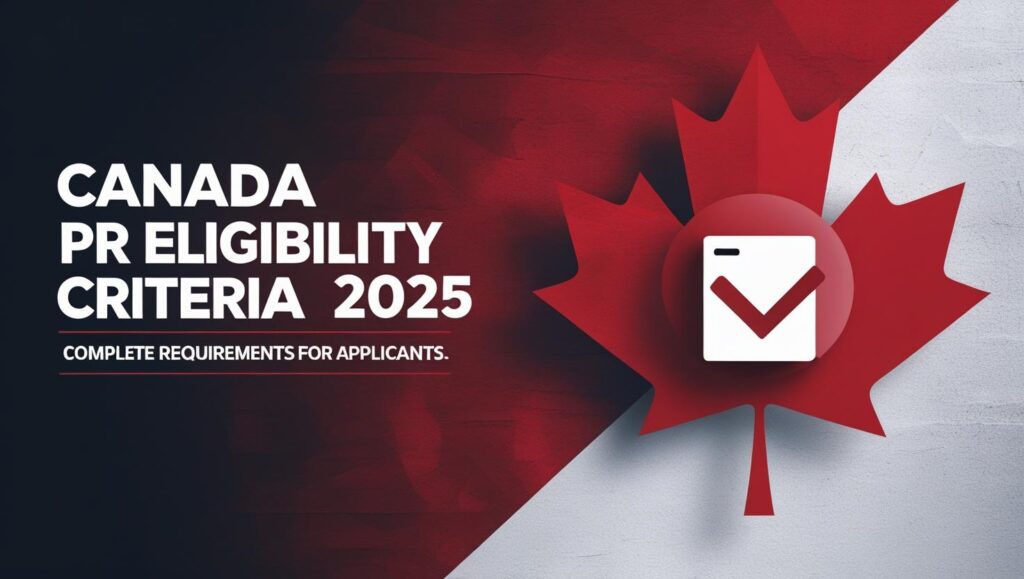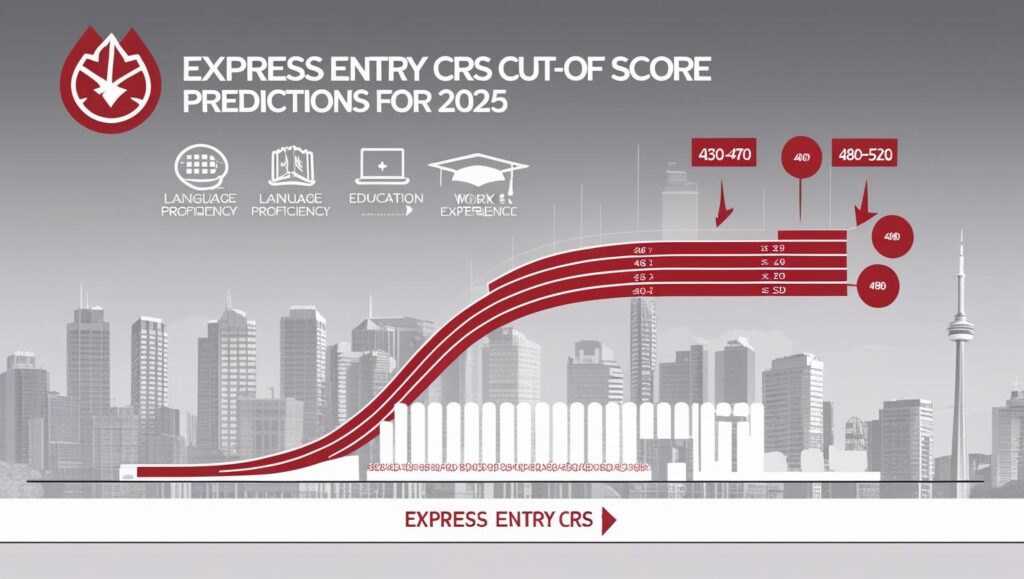Getting Permanent Residency (PR) in Canada is a dream for thousands of immigrants every year. In 2025, Canada’s immigration system continues to focus on attracting skilled workers, international graduates, entrepreneurs, and family members. But before applying, you must meet the Canada PR eligibility requirements.
This complete guide will help you understand Canada PR requirements in 2025, the documents you need, and tips to improve your chances of approval.
—
1. What is Canada PR?
A Permanent Resident of Canada is a person who has been given permanent residency status by Immigration, Refugees and Citizenship Canada (IRCC). PR holders can:
- Live, work, and study anywhere in Canada.
- Access most social benefits like healthcare.
- Apply for Canadian citizenship after meeting residency obligations.
- PR is not the same as citizenship — PR holders remain citizens of their home country.
Read More: How to Get Canada PR in 2025: A Complete Step-by-Step Guide
2. Main Immigration Programs for PR in 2025
There are multiple pathways to apply for PR in Canada:
- Express Entry (Federal Skilled Worker Program, Federal Skilled Trades Program, Canadian Experience Class)
- Provincial Nominee Program (PNP)
- Quebec Skilled Worker Program
- Family Sponsorship
- Start-Up Visa
- Atlantic Immigration Program (AIP)
—
3. Canada PR Eligibility Criteria 2025
A. Age
- Best age range: 18–35 years (maximum CRS points).
- Over 35: still eligible but with reduced CRS points.
B. Language Proficiency
Approved tests: IELTS General, CELPIP, TEF Canada, TCF Canada.
Minimum CLB level:
- Express Entry FSW: CLB 7 (equivalent to IELTS 6.0 in each band).
- Higher scores = higher CRS ranking.
C. Education
- At least a high school diploma for some programs.
- Bachelor’s degree or higher for most economic immigration streams.
- Education Credential Assessment (ECA) is mandatory for foreign qualifications.
D. Work Experience
- Skilled work in NOC TEER 0, 1, 2, or 3.
- Minimum: 1 year full-time continuous experience in the last 10 years.
E. Proof of Funds
- Settlement funds required based on family size.
- Must be in liquid form (bank account, fixed deposits).
F. Medical & Police Clearance
- Medical exam from an IRCC-approved panel physician.
- Police clearance from every country lived in for more than 6 months after age 18.
G. CRS Score
- For Express Entry, your Comprehensive Ranking System score must meet or exceed the draw cut-off.
- CRS factors:
- Age
- Education
- Work experience
- Language skills
- Job offer or provincial nomination
—
4. How to Improve Your PR Chances in 2025
- Learn French for extra CRS points.
- Get a Provincial Nomination (adds 600 CRS points).
- Retake language tests to improve scores.
- Gain more skilled work experience.
—
5. Step-by-Step Canada PR Eligibility Check
- Select your immigration program.
- Take a language test.
- Get an ECA for your education.
- Calculate your CRS score.
- Prepare proof of funds.
- Apply through Express Entry or other pathways.
—
6. Common Reasons for PR Refusal
- Low CRS score.
- Insufficient proof of funds.
- Incomplete documents.
- Wrong NOC code.
- Expired test results.
—
7. Canada PR Processing Time in 2025
- Express Entry: 6–8 months.
- PNP: 12–18 months.
- Family Sponsorship: 12 months on average.
—
Frequently Asked Questions (FAQ)
Q1: Can I apply for Canada PR without a job offer?
Yes, most Express Entry programs do not require a job offer, but having one increases your CRS score.
Q2: How much money do I need for Canada PR in 2025?
It depends on family size. For a single applicant, around CAD 14,000 is required (as per 2025 IRCC update).
Q3: Is IELTS compulsory for Canada PR?
Yes, an approved language test like IELTS or CELPIP is mandatory for most immigration programs.
Q4: Can I get PR with low CRS score?
Yes, through a Provincial Nominee Program or by improving your language, work experience, or education points.
Q5: How long must I stay in Canada to keep PR?
You must live in Canada for at least 730 days in every 5-year period.



